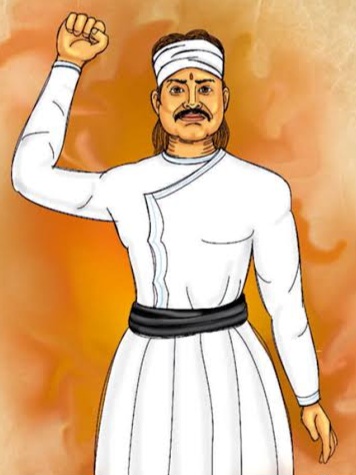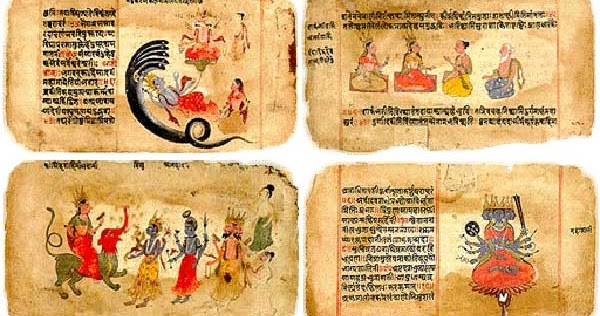By Dr. Bhupendra Kumar Sullere
Even after India’s independence, for those still thinking in the mindset of the British "divide and rule" conspiracy, the martyrdom of Nanak Bhil stands as a powerful example. A tribal by birth, Nanak Bhil emerged as a strong leader of a farmers' movement.
During World War I, the British Empire began forcibly collecting revenue in India to replenish their depleted treasury. This aggressive tax collection disproportionately affected the farmers. Soldiers appointed by the British went from village to village, torturing farmers to extract dues. Resistance spread across the country. In Rajasthan’s Bundi district, the farmer agitation saw the crucial involvement of revolutionary Nanak Bhil.
Nanak Bhil was born in the village of Dhaneshwar in the Barad region of Bundi district, Rajasthan. There are no detailed records of his birth or early life. His name, age, father’s name, and village are mentioned in British police records. Based on local folklore and oral traditions, his biography has been pieced together. According to official police documents, he is believed to have been born around 1890. His father, Bheru Bhil, used to gather forest produce and sell it in Dhaneshwar village. Over time, Bheru built a modest hut in the village, where Nanak Bhil was born.
From a young age, Nanak was fearless and brave. He had formed a strong group of tribal youth, and with time, village youth also joined his circle. Like his father, Nanak began collecting and selling forest produce in nearby villages, which expanded his network and influence across the region.
Around this time, social reformers Govind Guru and Motilal Tejawat launched a movement against the British's coercive tax collection. They brought Nanak Bhil into the fold. Nanak joined the movement wholeheartedly and, along with his group of youth, began a mass awareness campaign against British atrocities through patriotic songs and public gatherings.
He was a gifted singer and would gather people in village markets (haats) to inform them about British conspiracies. He also held farmer meetings in various villages to raise awareness.
One such meeting was held in Dabi on 13 June 1923. While Nanak Bhil was addressing the gathering, the British police suddenly arrived and surrounded the crowd. As panic broke out, Nanak remained unfazed. He continued waving the flag and singing patriotic songs. Infuriated, the British commander ordered his troops to shoot Nanak Bhil. A soldier fired a bullet straight into his chest. Nanak fell to the ground and became a martyr.
But his sacrifice did not go in vain. His martyrdom ignited widespread anger across the forest regions, and the movement gained momentum. Eventually, the British administration was forced to alter its tax collection policies and reduced the harsh measures against farmers whose crops had failed, providing them some relief.
The area in which Nanak Bhil had organized public meetings and awakened the people now comprises thirteen Gram Panchayats in the Barad region. He had inspired both tribals and farmers throughout this region. After independence, memorials were built in his honor at Dhaneshwar and Barad. An annual fair is now held in Barad to commemorate the sacrifice of Amar Shaheed Nanak Bhil.






